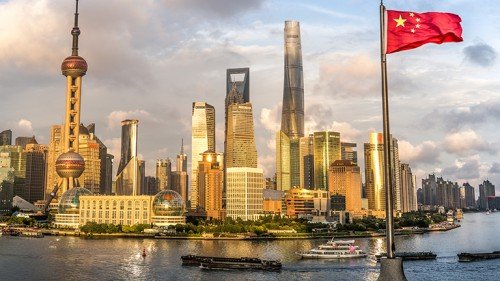
In 2020, China's political landscape saw significant developments, including the country's response to the COVID-19 pandemic, the Hong Kong national security law, and the US-China trade war. These events had far-reaching implications for China's domestic politics and its international relations. This blog post will provide an overview of the major political events that shaped China in 2020.
COVID-19 Pandemic Response
The COVID-19 pandemic originated in Wuhan, China, and quickly spread throughout the country in early 2020. The Chinese government was criticized for its initial response to the outbreak, including the suppression of information and lack of transparency. However, as the virus spread globally, China took measures to control the outbreak, including imposing strict lockdowns and deploying medical personnel to assist other countries.
In March 2020, China declared victory over the virus, and life slowly returned to normal in many parts of the country. The Chinese government touted its success in controlling the outbreak as evidence of the superiority of China's political system over Western democracies.
However, the pandemic also exposed deep-seated issues within China's political system, including the lack of accountability and transparency, which led to widespread public anger and criticism. The government's response to the outbreak also revealed the extent to which the Chinese Communist Party (CCP) was willing to prioritize political stability over public health concerns.
Hong Kong National Security Law
In June 2020, China passed the Hong Kong national security law, which criminalizes secession, subversion, terrorism, and collusion with foreign forces. The law was a response to the pro-democracy protests that rocked Hong Kong in 2019 and was widely criticized as a violation of Hong Kong's autonomy and civil liberties.
The law has had a significant impact on Hong Kong's political landscape, including the arrest and detention of pro-democracy activists and the disqualification of opposition lawmakers from the Legislative Council. The law has also prompted concerns about the erosion of Hong Kong's independent legal system and the chilling effect on free speech and political expression.
The national security law has also strained China's relations with the international community, particularly the United States, which has imposed sanctions on Chinese officials and entities involved in the implementation of the law.
US-China Trade War
The US-China trade war, which began in 2018, continued to escalate in 2020, with both sides imposing tariffs on each other's goods. The trade war had a significant impact on China's economy, with the country experiencing its slowest economic growth in three decades.
The trade war also had political implications, with China's leadership using the conflict to rally nationalistic sentiment and portray the US as a hostile force intent on containing China's rise. The trade war also highlighted the challenges facing China's economic development model, which relies heavily on exports and state-owned enterprises.
In January 2020, the US and China signed the Phase One trade deal, which included commitments from China to purchase more US goods and address intellectual property concerns. However, the pandemic and subsequent global economic downturn have complicated the implementation of the deal, and the US-China relationship remains strained.
Leadership Changes
2020 also saw changes in China's leadership, including the appointment of new officials to key positions. In May, Li Keqiang was reappointed as Premier of the State Council, while Wang Chen was appointed as the new head of the National People's Congress Standing Committee.
In addition, the CCP held its fifth plenum in October, where it unveiled its 14th Five-Year Plan, a blueprint for the country's economic and social development for the next five years. The plan emphasized the importance of technological innovation, self-reliance, and the building of a "dual circulation" economy that relies on both domestic and international markets.








